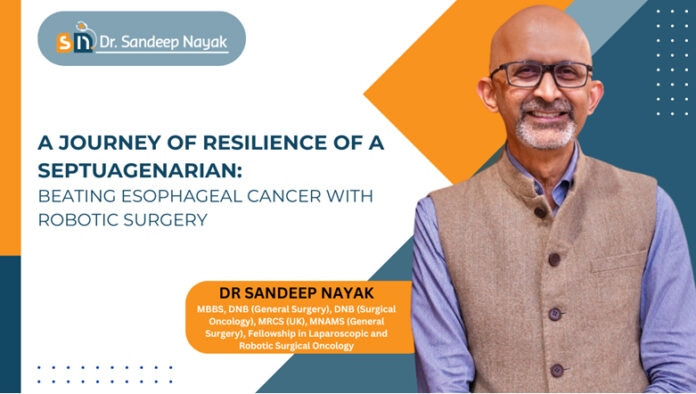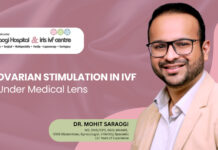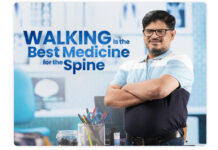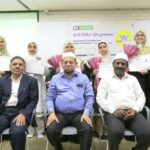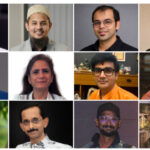Esophageal cancer remains one of the most challenging cancers to treat, with a median survival rate of just 18 months in locally advanced cases. In South India, where lifestyle and dietary habits often compound the difficulty of early detection, this disease takes a particularly heavy toll. Traditionally seen as a condition of old age, it primarily affects individuals over 60, though its impact on younger patients brings unique challenges. The physical toll of treatment, combined with the emotional weight of a life-threatening diagnosis, makes it an uphill battle. Amid these grim statistics, stories of triumph stand out as reminders of the potential of modern medicine. One such story is that of a 75 year old gentleman student who overcame a diagnosis of lower esophageal adenocarcinoma in 2018 and went on to achieve his dream of completing his PhD five years later.
Helping him through this journey was Dr. Sandeep Nayak, widely regarded as the Best Surgical Oncologist in India. Known for pioneering minimally invasive cancer surgeries, Dr. Nayak employed a robotic esophagectomy to address the patient’s cancer. This state-of-the-art procedure proved not only life-saving but transformative, underscoring the role of advanced surgical techniques in changing patient outcomes.
The septuagenarian gentleman’s journey began with a devastating diagnosis of lower esophageal adenocarcinoma—a particularly aggressive form of cancer often linked to factors like obesity, acid reflux, and certain lifestyle habits. For many, such a diagnosis would feel like a roadblock to personal and professional aspirations. But this patient’s resolve remained unshaken, even as the weight of his diagnosis loomed large. Dr. Nayak recommended robotic esophagectomy with two-field lymph node dissection, a cutting-edge technique that minimizes trauma while maximizing surgical precision.
Robotic esophagectomy offers a host of advantages over traditional open surgery. The robotic arms allow unparalleled accuracy in removing cancerous tissue and lymph nodes, possibly improving long-term survival and reducing recurrence rates. Unlike conventional procedures, which require large incisions and lengthy recovery times, robotic surgery involves smaller incisions, resulting in less pain, faster recovery, and reduced risks of complications. These features are particularly important in esophageal cancer, where precise removal of affected areas and surrounding lymph nodes plays a critical role in achieving better outcomes.
Under Dr. Nayak’s expert care, the surgery was completed successfully, and the patient was discharged just five days later—a remarkable achievement in esophageal cancer care. Reflecting on the procedure, Dr. Nayak shared, “Robotic surgery isn’t just about precision—it’s about giving patients a chance to recover faster and resume their lives sooner. For younger patients, that means pursuing their goals without cancer derailing their dreams. For elderly patients, it means avoiding the risks and challenges that come with traditional open surgeries. It’s about tailoring care to what’s best for the individual.”
The patient’s decision to forego chemotherapy post-surgery added another layer of complexity to his journey. Though this choice carried inherent risks, it underscored his focus on recovery and his determination to complete his doctoral studies. This decision required immense resilience, as he faced the dual challenge of physical recovery and the emotional strain of rebuilding his life after a major health crisis. By 2023, he not only overcame cancer but also achieved his PhD—an accomplishment that stands as a beacon of hope for others facing similar diagnoses.
“This was not an easy decision,” Dr. Nayak notes, acknowledging the courage it took for the patient to chart his own course. “As doctors, our role is to guide and support, but ultimately, the patient’s determination and optimism play a huge role in their recovery. His story is an incredible example of what can be achieved with the right mindset and the right care no matter what age group.”
Dr. Nayak emphasized the broader implications of this case. “For esophageal cancer, especially in locally advanced stages, extensive lymph node dissection is critical to improving survival rates. Robotic systems allow us to perform these procedures with a level of precision and thoroughness that was previously achievable with large wounds. But surgery is just one part of the equation. It’s the patient’s willpower, combined with a multidisciplinary approach, that truly determines the outcome.”
This case also sheds light on the transformative potential of robotic surgery for elderly patients, who often face greater risks with traditional approaches. By minimizing trauma and recovery time, robotic esophagectomy provides a safer and more effective alternative. Traditional open surgeries, with their longer hospital stays and higher risk of complications, can be particularly daunting for older individuals. Robotic-assisted techniques reduce these risks and offer new hope for elderly patients who may otherwise be unable to tolerate extensive surgical interventions.
Dr. Nayak has performed numerous such surgeries, with many of his patients exceeding the five-year survival milestone. His focus on personalized, minimally invasive techniques has redefined how esophageal cancer is treated in India. Beyond the technical precision of the surgery itself, he believes in addressing the holistic needs of each patient. “Every patient’s journey is different,” Dr. Nayak explains. “What matters most is listening to their concerns and creating a plan that aligns with their goals and circumstances. It’s about treating the person, not just the disease.”
In addition to the technical benefits, Dr. Nayak stressed the importance of empathy and clear communication in cancer care. “When someone is diagnosed with a condition as serious as esophageal cancer, they’re not just looking for treatment—they’re looking for hope. Our responsibility as doctors is to combine the best medical practices with genuine support, helping them see that survival is possible and life after cancer can be fulfilling.”
For those battling esophageal cancer, this story serves as a powerful reminder that diagnosis does not define destiny. With advancements like robotic-assisted surgery and the unwavering determination of patients, triumph over cancer is no longer just a possibility—it’s a reality.
As the septuagenarian PhD graduate’s journey shows, even the most daunting challenges can be overcome with the right combination of advanced medical care and resilience. Whether young or old, every patient deserves a chance to fight cancer on their terms, and with leaders like Dr. Sandeep Nayak at the helm, that chance is within reach.
About Dr. Sandeep Nayak
Dr. Sandeep Nayak, one of India’s leading surgical oncologists and the Founder and Chief of Surgical Oncology at MACS Clinic, Bangalore, is globally recognized for his expertise in minimally invasive cancer surgery. With innovations like robotic thyroidectomy and robotic neck dissection to his credit, he has performed thousands of successful minimal access surgeries, setting new benchmarks in cancer care.
For further details, Contact Dr. Sandeep Nayak –
MACS Clinic,
42nd Cross Rd,
8th Block, Jayanagar,
Bengaluru, Karnataka – 560070
Email: [email protected]


